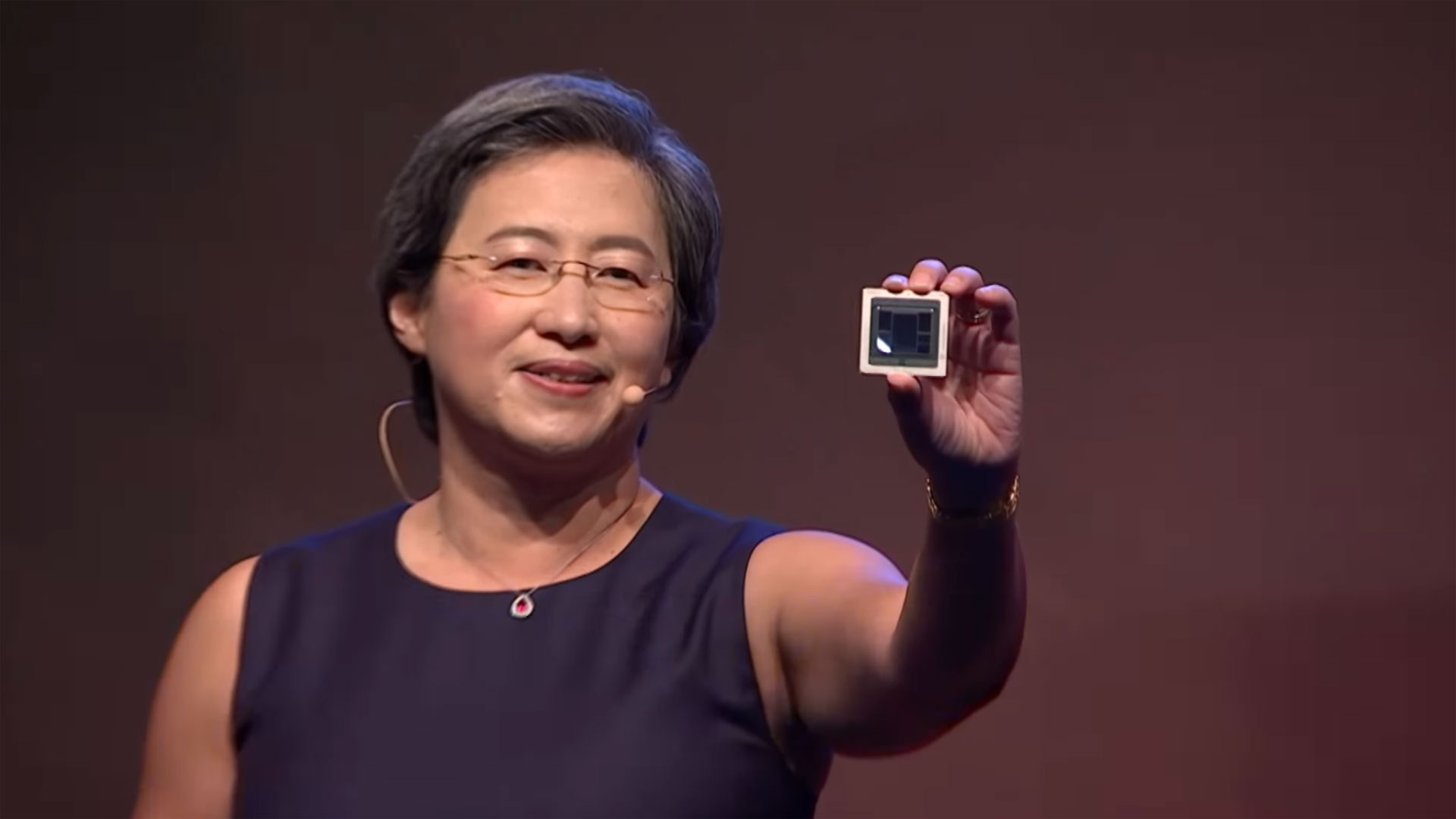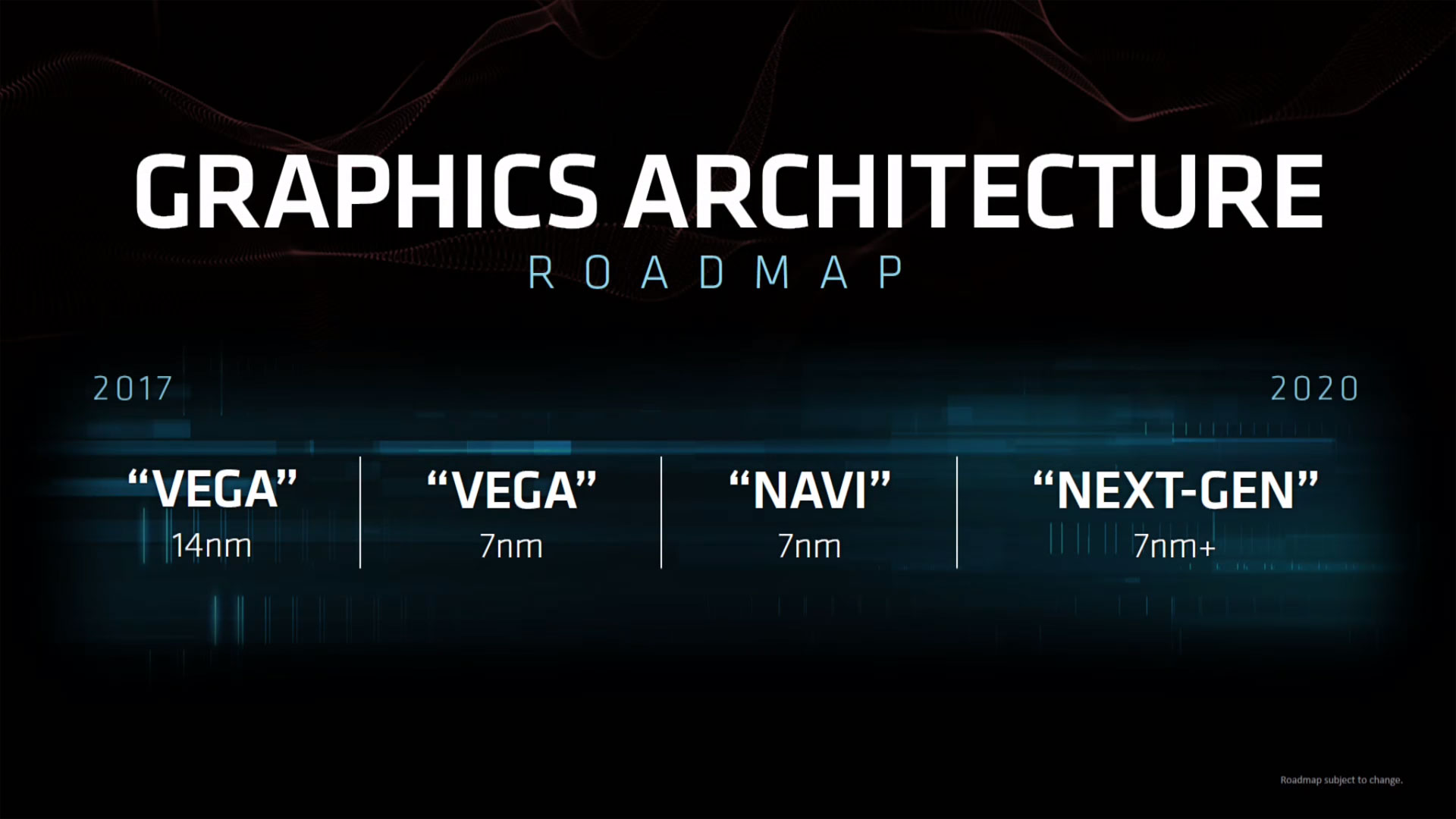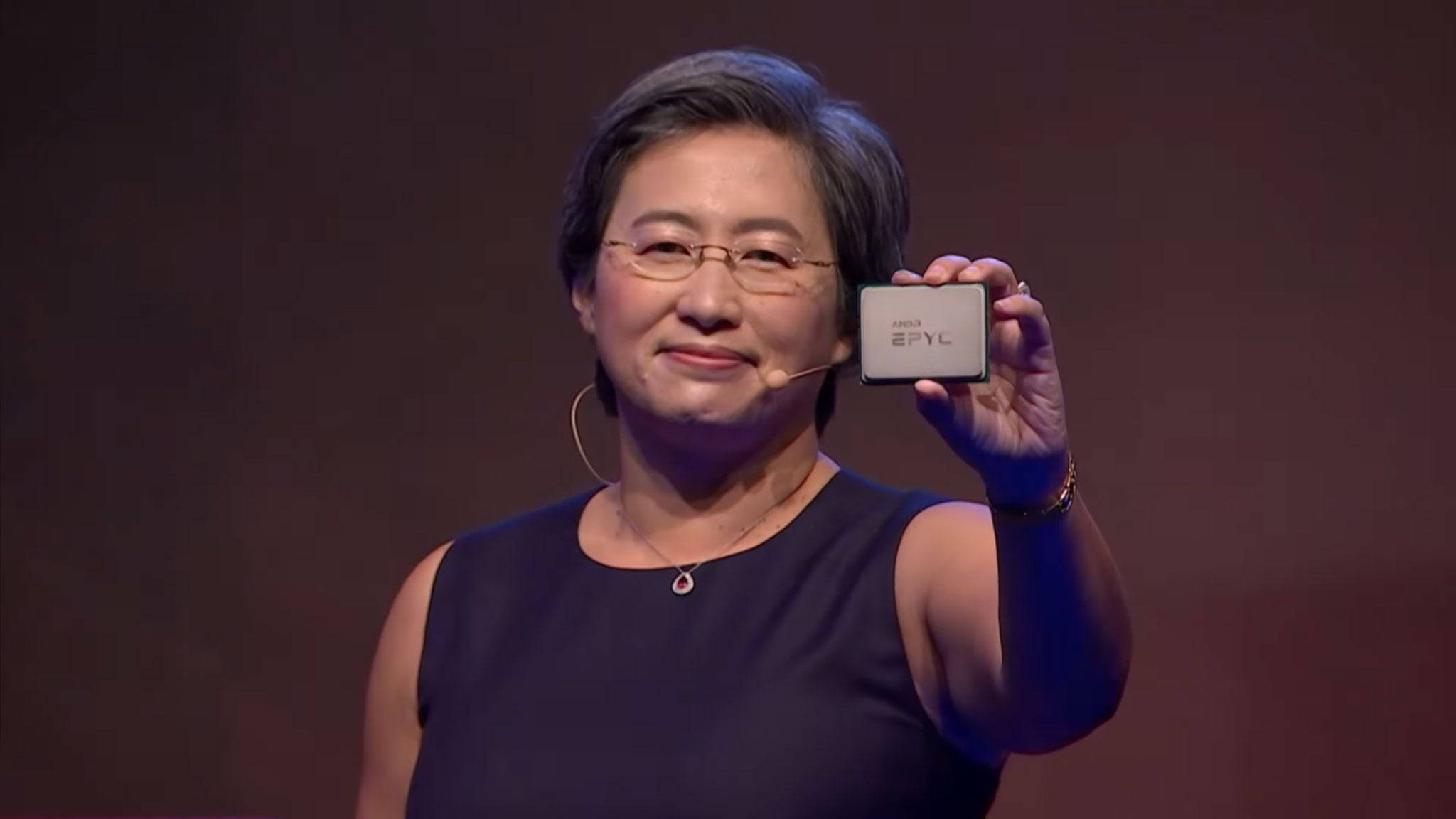AMD is 'definitely bringing 7nm to gaming GPUs' but don't expect them any time soon
AMD demonstrated working 7nm silicon with 32GB Vega and has 7nm Epyc samples in its labs.

AMD has made some excellent progress on the CPU front over the past year, with second generation Ryzen processors continuing to impress at all price points. That's great for now, but AMD is also looking to the future, and the future is 7nm.
The first 7nm parts from AMD will be a refined version of Vega, fittingly called Vega 7nm. The initial chips will go in Radeon Instinct cards targeting datacenter environments with a focus on machine learning and compute workloads. AMD also notes that Vega 7nm includes new deep learning operations to help accelerate training and inference applications, perhaps similar to the Tensor cores on Nvidia's Volta architecture.
Radeon Instinct won't mean much for gamers, Lisa Su also stated, "For all you gamers out there, we are definitely bringing 7nm to gaming GPUs as well, so stay tuned on that." That's no surprise, and unfortunately there was no commitment on when exactly 7nm GPUs for gamers will arrive. AMD did have Vega 7nm chips working, with 32GB of HBM2 spread over four stacks, which means a future gaming Radeon may shift to 16GB when it arrives.

Moving forward, AMD plans to alternate between new graphics architectures and new process nodes. AMD says it's "committed to bringing new graphics products every year, consistently." We already have Vega, Vega 7nm is coming next, and after that will be Navi, also built on 7nm. Beyond Navi, AMD's roadmap only lists "Next-Gen" built on a "7nm+" process. Rumors are the post-Navi GPU will be the first post-GCN architecture as well, though what that will entail is impossible to say.
7nm will be the most advanced process node this year. It's worth pointing out that based on feature sizes, the Samsung and GlobalFoundries 7nm node appears to have much in common with Intel's upcoming 10nm node—just like the 12nm node is similar in many ways to Intel's 14nm process. In other words, don't get so hung up on the numbers that you think all 7nm parts are the same. Still, the 7nm process will allow for smaller, faster transistors, and AMD has multiple products in development for 7nm.

The other major product in development for 7nm is AMD's Zen 2 processors. AMD has initial samples in its labs, and says that 7nm Epyc will be sampling "very shortly" and will launch in 2019. No details were provided regarding architectural enhancements, core counts, or anything beyond showing a 7nm Epyc chip package (which looks the same as a 14nm Epyc chip thanks to the large heat spreader), but adding even more cores per die seems likely. The only thing we know for sure is that, just like the second generation Ryzen parts work in existing AM4 boards and the upcoming 32-core Threadripper will work in TR4 boards, the 7nm Epyc chips will be drop-in upgrades for existing Epyc servers.
The biggest gaming news, reviews and hardware deals
Keep up to date with the most important stories and the best deals, as picked by the PC Gamer team.
Jarred's love of computers dates back to the dark ages when his dad brought home a DOS 2.3 PC and he left his C-64 behind. He eventually built his first custom PC in 1990 with a 286 12MHz, only to discover it was already woefully outdated when Wing Commander was released a few months later. He holds a BS in Computer Science from Brigham Young University and has been working as a tech journalist since 2004, writing for AnandTech, Maximum PC, and PC Gamer. From the first S3 Virge '3D decelerators' to today's GPUs, Jarred keeps up with all the latest graphics trends and is the one to ask about game performance.


